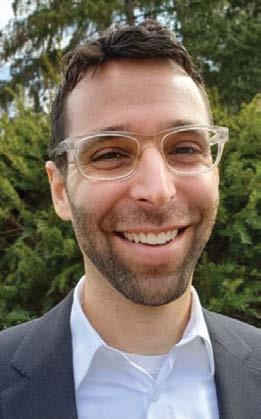
2 minute read
Summer
Summer
Rabbi Scott Fox | Temple Israel
Advertisement
There is a natural flow to the seasons. A cycle of the earth that is older than any one of our institutions. For longer than we have record, people have been experiencing the change of sky and earth from cold to warm and warm to cold again. Of the many things that tie us to generations that have come before us, there is possibly nothing more unifying than the seasons. We feel it in our bodies, and it changes us, charges us to pick up and take to the outside, or to cozy up with a book.
No surprise then, that our tradition has a long-standing relationship with this course. In the fall, we pick up our lives and vision for an arriving new year. We reflect on the big picture and prepare to send our children and grandchildren to school. We feel history. In the winter, we let ourselves calm. Times of hibernation are natural for all living things. We recharge, and of course, remind ourselves that even at the darkest time of the year light is important and possible. In spring we awaken with matzah to the need for repair in our world. The work of justice so familiar to us as it’s as if resting right there on our tongue, and then we get to work.
But summer is a different thing altogether. We don’t have any major holidays in this season. There’s Tu B’av, a minor holiday, and the Jewish Valentine’s Day, and Tisha B’av our day of mourning comes at the end, but what about the middle? That giant span of weeks and months when the sun is brightly shining and camp is in full swing, doesn’t have any of the big family dinners. There’s no need to dust off your suit or decorate the house. It’s just a time of rest, in between, and it’s surprising that Judaism seems not to have anything to say about it, no round challahs or pointy hamentaschen. It’s just time, almost as if our tradition is telling us that the work has been done, our hearts and minds are in the right place, and we can just go outside, and enjoy.










